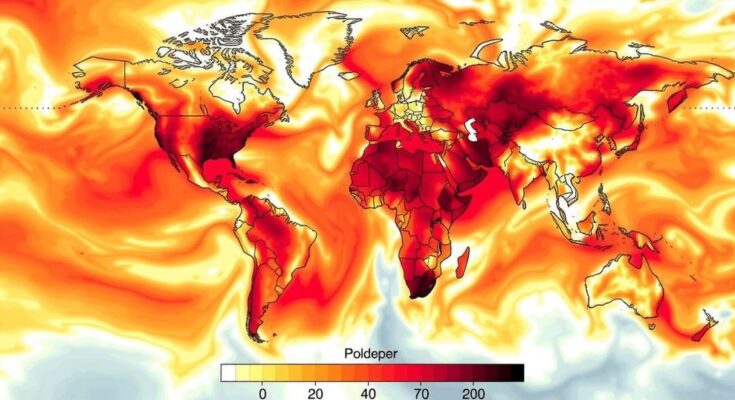A recent report indicates that climate change has led to an average of 41 extra days of dangerously high temperatures globally in 2024, resulting in over 3,700 fatalities and widespread displacement. Researchers stress the urgent need for a transition to renewable energy and improved preparedness for extreme weather events in the years to come.
In a startling report by World Weather Attribution (WWA) and Climate Central, scientists reveal that human-induced climate change has resulted in an average of 41 additional days of dangerously high temperatures globally in 2024. This dramatic increase in extreme heat events, coupled with significant weather disturbances, has sadly led to the loss of over 3,700 lives and displaced millions. The analysis emphasizes the urgent need for nations to cease reliance on fossil fuels and prepare for ongoing extreme weather conditions as we move into 2025 and beyond. Dr. Friederike Otto, a key contributor to the study, noted that “this year has been the clearest and most devastating demonstration of the impacts of fossil fuel warming,” urging global leaders to take action before it is too late.
The report, titled “When Risks Become Reality: Extreme Weather in 2024,” provides a sweeping analysis of the escalating ramifications of climate change around the world. It highlights how warming, primarily driven by fossil fuel consumption, has intensified nearly all weather events examined. Natural disasters, including hurricanes, floods, and droughts, are becoming increasingly severe, threatening human life, health, and the environment at large. The findings underscore the critical imperative for international cooperation and immediate action to mitigate these impacts.
In conclusion, the findings from the WWA and Climate Central are very alarming, highlighting an unprecedented rise in extreme heat days due to climate change and associated weather extremes. With 2024 on course to be the hottest year on record, immediate comprehensive and collective action is essential. Nations must focus on transitioning to renewable energy, enhancing infrastructure to combat climate-related risks, and fulfilling financial commitments to assist vulnerable populations.
Original Source: www.dynamitenews.com




